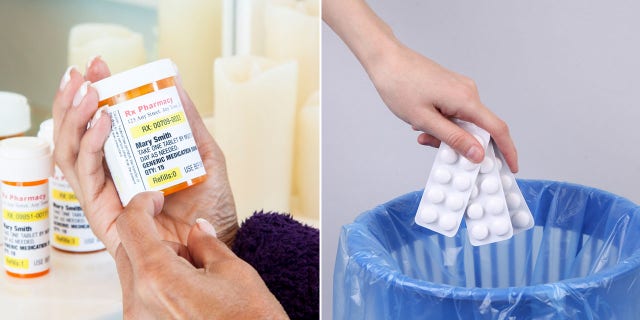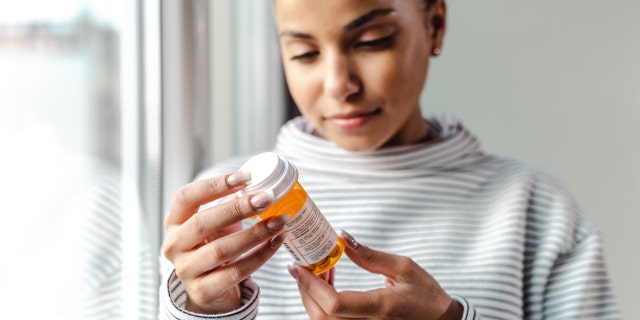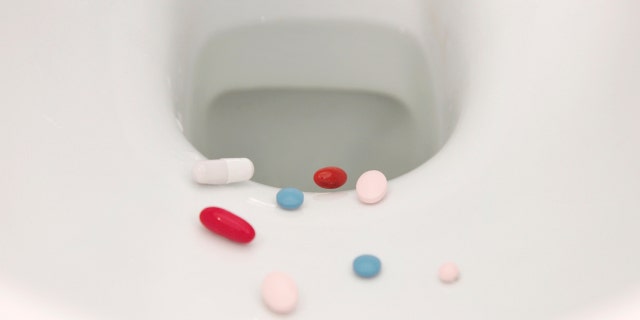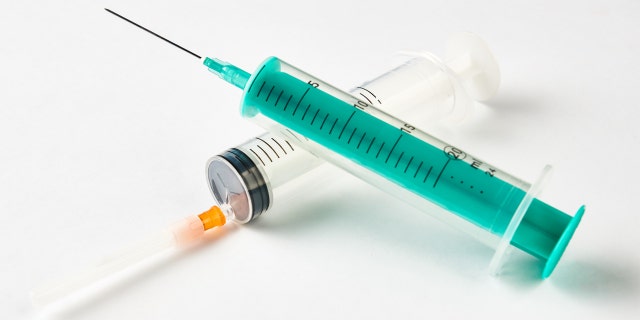
Spring is the prime season to declutter closets, kitchens and garages — but don’t forget to add an annual medicine overhaul to your cleaning list.
“Medications have expiration dates, just like food,” Christina Aungst, PharmD — the pharmacy editor at GoodRx, who is based in Jefferson, Massachusetts — told Fox News Digital in an email.
“That’s why it’s a good idea to regularly review your medicine cabinet to make sure the medications you do have on hand are ready to use when you need them.”
Dr. Aungst recommends scheduling a specific time to check your medications each year, such as during spring-cleaning season.
Clear out unneeded or outdated meds while disposing of properly
Any medications that are no longer needed or have passed their expiration dates should be set aside for disposal.
YOUTH OPIOID OVERDOSES ON THE RISE AS SCHOOLS STRUGGLE TO FIGHT THE EPIDEMIC
“Expiration dates help consumers understand how long a medication is guaranteed to work properly and safely,” Dr. Aungst explained.
“After this point, some medications become more susceptible to bacterial contamination and others lose their potency, which is especially dangerous if the medicine is intended to treat or prevent a serious disease.”

Any medications that are no longer needed or have passed their expiration dates should be disposed of properly, a pharmacist told Fox News Digital. That means taking them to a “medication take-back location.” (iStock)
For example, taking expired insulin can make it less effective and have a negative impact on blood sugar levels, the doctor warned.
Search for proper medication disposal sites near you
Dr. Aungst said the best way to get rid of expired or unwanted medications is to take them to a “medication take-back location.”
“These locations, typically found in pharmacies and hospitals, will safely destroy all medication donated to them,” she explained.

“Make sure to remove any identifiable information” on medication labels “before dropping them off,” said one expert. (iStock)
“Just make sure to remove any identifiable information on the medication label before dropping them off.”
The U.S. Drug Enforcement Administration (DEA) website allows you to search for the nearest Controlled Substance Public Disposal Locations by entering your zip code or city/state.
Check FDA’s ‘flush list’
Some medications, including those that are highly sought after for “abuse potential” or those that could potentially be life-threatening for kids, pets or adults, can be flushed to prevent accidental ingestion.

The FDA says that some medications should be flushed down the toilet to prevent accidental ingestion. Check the list of flushable medications before you do this, however. (iStock)
The FDA has posted a full list of flushable medications — primarily those containing opioids — on its website.
Search for drug donation centers
Some states run local drug repository programs, which collect unused medications and donate them to people in need.
OPIOID DRUGS CAUSE MORE THAN HALF OF YOUNG CHILDREN’S POISONING DEATHS: NEW STUDY
“It’s best to check directly with your state’s Board of Pharmacy to find a repository that accepts medications from individuals,” Dr. Aungst said.
“Many states will only accept donations from health care organizations.”
Use caution with ‘sharps’ and old inhalers
It’s important to take extra precautions with old “sharps” (needles that have been used for injections) and inhalers, said Dr. Aungst.

SafeNeedleDisposal.org has an online map with instructions for state-specific sharps disposal, as well as a zip code lookup for disposal locations. (iStock)
“Used needles and inhalers can be dangerous and should never be thrown in the trash unprotected or flushed down the toilet,” she said.
“Disposal recommendations for sharps vary by state, but online resources can help you understand and follow your state’s regulations.”
CLICK HERE TO SIGN UP FOR OUR HEALTH NEWSLETTER
SafeNeedleDisposal.org has an online map with instructions for state-specific sharps disposal, as well as a zip code lookup for disposal locations.
Some expired medications can become contaminated or lose their potency.
For inhalers, Dr. Aungst said local trash and recycling facilities can provide recommendations for proper disposal. Some Walgreens pharmacy locations will also accept old inhalers.
Safely store what’s left
Once you’ve finished purging unneeded or expired medications, be sure to store the remaining meds in a cool, dry location that can’t be accessed by kids or pets.
CLICK HERE TO GET THE FOX NEWS APP
“This helps prevent damage that can shorten the shelf life of your medication and can prevent accidental ingestion,” said Dr. Aungst.
To read more pieces in Fox News Digital’s “Be Well” series, click here.

 Latest Breaking News Online News Portal
Latest Breaking News Online News Portal




